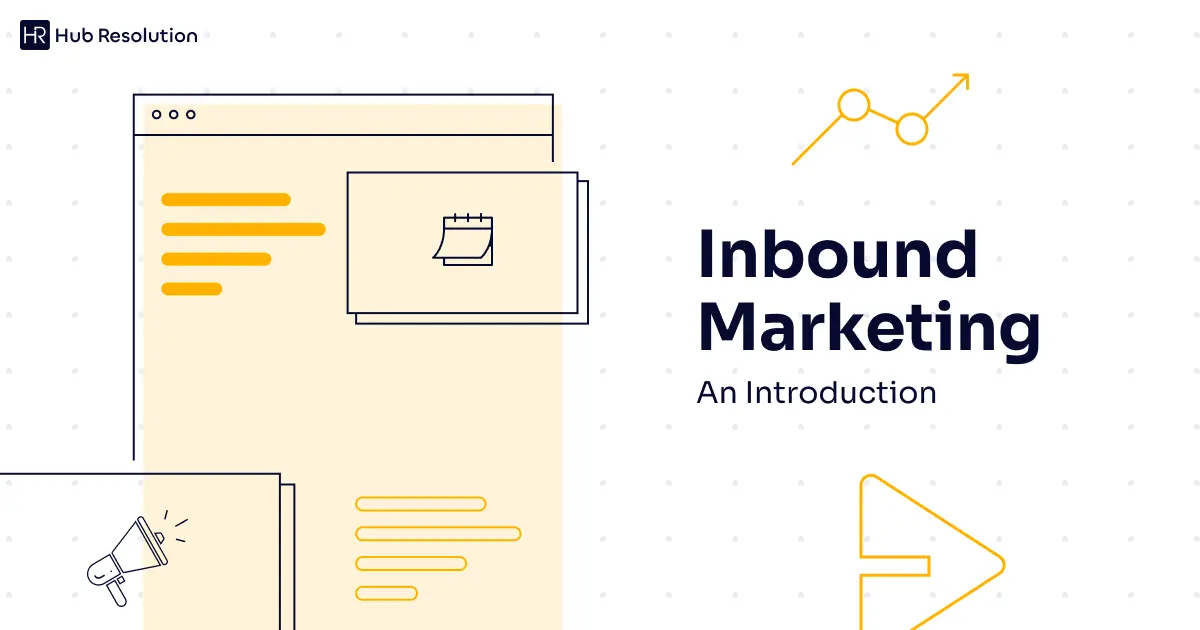HubSpot Development
Create a beautiful website that is easy-to-use and has the end users' goals in mind.


Inbound marketing has become an essential strategy for businesses aiming to build lasting relationships with their customers in today's digital age. Unlike traditional outbound marketing, which often interrupts potential customers with content they didn't seek out, inbound marketing focuses on creating valuable experiences tailored to the audience's needs and interests. This approach not only attracts customers to your brand but also engages and delights them over time, encouraging loyalty and advocacy. In this comprehensive guide, we'll explore the core principles, strategies, and benefits of inbound marketing, providing insights into how businesses can leverage this methodology to drive sustainable growth.
Inbound marketing is a holistic, data-driven approach designed to attract individuals to your brand and convert them into lasting customers. It is built upon the foundation of attracting, converting, closing, and delighting customers — a cyclical process that focuses on providing value at every stage of the customer's journey.
Attract: Drawing in the right audience is crucial. This step involves creating and disseminating content that speaks directly to the interests and needs of your ideal customer personas. Effective tactics include blogging, SEO, and strategic use of social media platforms.
Convert: Once visitors land on your website, the next goal is to convert them into leads by collecting their contact information. Utilizing CTAs, landing pages, and forms effectively, and offering valuable resources in exchange for their details, facilitates this process.
Close: After converting visitors into leads, the challenge is to nurture these leads towards making a purchase. Personalized email marketing, lead scoring, and CRM integrations are vital tools in closing the sale by providing timely and relevant content.
Delight: The relationship doesn't end with a sale. The delight stage focuses on providing ongoing support and valuable content to ensure customer satisfaction, encouraging repeat business, and turning customers into brand advocates.
Inbound marketing offers numerous benefits over traditional marketing methods, making it an attractive strategy for businesses of all sizes.
Cost Efficiency: Generally, inbound marketing is less expensive than traditional outbound methods. The focus on creating content and leveraging digital platforms can lead to a higher return on investment, especially since the content continues to attract and engage customers over time.
Builds Trust and Credibility: By consistently providing valuable content that addresses the needs and questions of your audience, you position your brand as a trusted advisor. This credibility is invaluable in building lasting relationships with your customers.
Meets Modern Buyer Behavior: With the majority of consumers turning to online research before making a purchase, inbound marketing meets potential customers where they are, providing them with the information they seek and guiding them through the buying process.
Fosters Long-Term Relationships: Inbound marketing's emphasis on creating positive experiences and providing ongoing value fosters loyalty, encouraging customers to not only return but also to advocate for your brand to others.
A successful inbound marketing campaign involves a variety of strategies designed to attract, engage, and delight customers. Here are some effective tactics to consider:
Content Marketing: At the heart of inbound marketing is content creation. Develop a content strategy that addresses your audience's interests and pain points. Use a mix of formats, such as blog posts, videos, infographics, and podcasts, to engage different segments of your audience.
Search Engine Optimization (SEO): Enhance your online visibility by optimizing your website and content for search engines. Conduct thorough keyword research, optimize your pages (on-page SEO), and build high-quality backlinks to attract more organic traffic.
Social Media Marketing: Leverage social media platforms to distribute your content, interact with your audience, and increase brand awareness. Tailor your content and engagement strategies to suit the unique culture of each platform.
Email Marketing: Segment your email list to deliver personalized and relevant content that nurtures leads through the buyer's journey. Utilize automated email workflows to send timely content based on user actions or stages in the sales funnel.
Customer Relationship Management (CRM): A robust CRM system is essential for tracking interactions with prospects and customers, personalizing marketing efforts, and streamlining the sales process. Integrating your CRM with your inbound marketing strategies can significantly enhance the customer experience.
Analytics and Measurement: Continuously monitor and analyze the performance of your inbound marketing efforts. Use analytics tools to track website traffic, conversion rates, and customer engagement metrics. This data is critical for refining your strategies and optimizing your ROI.
While inbound marketing offers numerous benefits, businesses may encounter challenges in implementing and optimizing their inbound marketing strategies. One common challenge is creating high-quality, engaging content consistently. To overcome this, businesses should invest in a dedicated content team or collaborate with content creators who understand their brand and audience.
Another challenge is staying up-to-date with SEO best practices and algorithm changes. Regular training and staying informed through industry blogs and forums can help mitigate this issue. Additionally, measuring the ROI of inbound marketing efforts can be complex due to the multifaceted nature of the strategy. Implementing a robust analytics framework and setting clear, measurable goals can help businesses accurately assess their inbound marketing performance.
Inbound marketing represents a fundamental shift in the way businesses interact with their customers. By focusing on creating valuable content and experiences, companies can attract more qualified leads, build trust and credibility, and foster long-term customer relationships. Implementing effective inbound marketing strategies requires a comprehensive approach, combining content marketing, SEO , social media marketing, email marketing, and analytics.
Despite the challenges, the benefits of inbound marketing — including cost efficiency, alignment with modern buyer behavior, and the ability to build lasting relationships — make it an essential component of any modern marketing strategy. As consumer behaviors continue to evolve, embracing the principles of inbound marketing will remain key to achieving sustainable business growth.